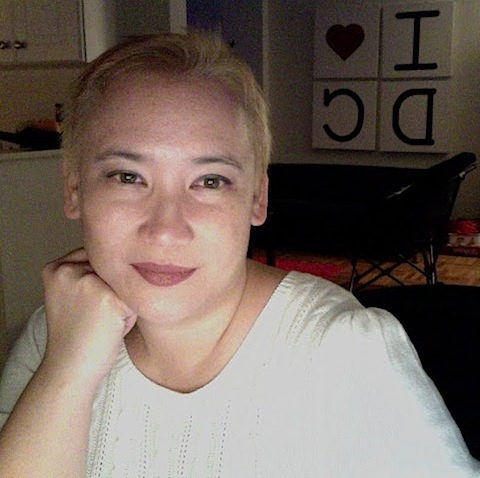With the growing interest in social business and how social technology can change organizations, we’re starting to hear more and more mainstream business commenters weigh in with their opinions.
While these new and novice commenters won’t drown out the voices of the well-established experts (especially those who have corporate support behind them), the increase in commenters may make it harder for you to find independent voices with unique perspectives. These independent voices are important, because these are the folks who are shaking up the conversation and asking us to think broadly about what social technology could do.
Here are 7 experts whose views on social technology will change how you think about “social” in organizations.
Each of these experts has something unique and wise to say about social technologies, digitally-mediated work activity, social business, and the movement towards more social organizations. These experts are particularly curious, so they read widely and think deeply. And, they are particularly adept at bringing ideas from a range of disciplines into the conversation about social technology at work.
I rely on these folks to lead me to think more expansively — and so should you.
Pound for pound, post for post, following these experts will help you understand the fundamental challenges of social media in organizations. They’ll raise sophisticated questions and connections for you to ponder. And, they’ll help you be a better leader and advocate for transformation and change.
7 Frame-Changing Social Business / Social Organization Experts

Elizabeth Lupfer
@socialworkplace
TheSocialWorkplace
Senior Manager, HR Technology & Employee Experience, Verizon
Elizabeth puts social technology into the day-to-day work of the organization. Elizabeth’s blog posts are entertaining, real-world windows on how social media is influencing (even transforming) how people work in organizations, especially how it can transform employees’ experiences with “the organization” ( e.g., HR and employee ‘touchpoints’). (Her posts have helped me understand the nitty gritty of how the social intranet in particular will transform organizations.)
On her blog TheSocialWorkplace, Elizabeth curates posts about social technology from other experts, and her blog is a great place to find good case studies. Her blog and twitter feed are your one-stop-shopping for relevant and provocative writing about all things social.
Elizabeth is more than just a curator, though. She’s a very original thinker. Because Elizabeth designs and implements social systems in her own job at Verizon, she’s able to bs-test pretty much any idea or opinion. She sees both the flaws and the opportunities of social tech in organizations. Her elegant and approachable writing finds connections between other peoples’ ideas, shows how an idea can be well implemented, and projects future concerns and trends.
- A Socially Networked Company Makes for a More Human Workforce (Revisited)
- Why the Super Bowl’s Social Media Command Center Scores a Winning Touchdown
- When Employees aren’t Happy, then the Company Isn’t Happy

Rachel Happe
@rhappe TheSocialOrganization (her business blog)
TheCommunityRoundtable (her company, with Jim Storer)
Rachel Happe looks at how “social” will change organizations, with a special focus on the role that communities and community managers will play in creating a more social workplace. Rachel’s perspective on social media flows from a real-world understanding of the dynamics of groups in organizations. She understands how group dynamics can be shaped and nurtured by savvy and attentive managers. Plus, she pays attention to how these dynamics affect organizational-level capabilities.
Rachel writes comprehensive, thoughtful pieces about what social organizations could be — she’s a well-grounded visionary, if you can imagine such a perspective. This combination, along with Rachel’s ‘former consultant’ skill at creating models and frameworks (like the Community Maturity Model), lets her simplify complex relationships to help us understand them better.
- Radical Transparency: Where the Rubber Hits the Road
- Why Socializing Organizations Matters to Me
- Social Media is not Community
 Maddie Grant
Maddie Grant
@maddiegrant
SocialFish (her business blog)
Social strategist for associations & nonprofits at SocialFish
Maddie focuses on social technologies for associations and nonprofits, and she’s sensitive to the added importance of social media for establishing members’ connections and for sustaining a shared sense of purpose. Maddie approaches social technology not only as a way to serve an organization’s strategic agenda, but also as a way to serve members. Even when her posts offer practical advice (and they usually do) there’s an understanding of the big picture and the big goals behind the recommended behaviors.
With co-conspirator Jamie Notter, Maddie recently published Humanize: How people-centric organizations succeed in a social world. Humanize is the best book you could possibly find about the multi-level, value-driven changes facing organizations who really want to succeed with social. In Humanize, Maddie and Jamie advocate for wholesale organizational change, with or without social technology, but always with an emphasis on what’s good for members individually and collectively.
 Deb Lavoy
Deb Lavoy
@Deb_Lavoy
ProductFour (her blog)
Deb is the sage of collaborative work/ innovative teams. She’s also Director of Product Marketing for Social Media at OpenText. Deb has an engineer’s understanding of how data parts and human wholes fit together, and an advocate’s appreciation for the possibilities of socialized tools. Deb is quick to see what’s common to both internal, task oriented systems and externally focused customer/ service oriented systems, so she’s able to bridge the disciplinary divide between Enterprise2.0 and Social CRM.
Deb also writes about the cultural, value-centered foundations of social technology. She was one of the earliest voices in the social business community to call attention to central concepts like shared purpose, meaning, and organizational change. Because she combines the roles of philosopher and pragmatist, Deb’s vision and advice are credible, actionable, and inspiring.
 Anne Marie Mc Ewan
Anne Marie Mc Ewan
@SmartCo
The Smart Work Company(blog)
Anne Marie’s unique perspective is grounded in her research as a management academic and her consulting experience in organizational development. AnneMarie’s in the middle of writing a book and has blogged less often lately, but her posts are always pretty deep, and challenging. Anne Marie is the only person I’ve heard talking about the links between (what we think of as) new dynamics triggered by social technologies and long standing wisdom about technologies of organizational change.
Because Anne Marie is able to reach back to what we learned in these previous change movements, like work redesign, total quality, Six Sigma, and the Human Relations Approach, she refuses to treat old ideas as though they were new. Instead, she fills in the space between old and new by highlighting timeless lessons.
 John Tropea
John Tropea
@JohnT
LibraryClips (blog)
Snippets (Tumblr)
John on Google+
John is a terrific curator of ideas that are directly relevant to social business/ social organizations, as well as ideas in related fields like complexity science, network theory, decision-making, and leadership. Following John’s twitter stream and his posts is like having your own curiousity bot scouring the web for bits of insight, and then bringing them home to assemble and interpret.
John will find the odd quote, the revealing example, and the assumption-stomping question to help you expand your perspective. Even better, John usually comments on what he finds, not only by evaluating ideas (which is quite useful in and of itself) but also by showing you where else to look to develop your own opinion. John’s thinking is so wide ranging he’ll connect dots that aren’t even on the same page.
 Thomas Vander Wal
Thomas Vander Wal
@vanderwal
PersonalInfoCloud (blog)
Thomas is an expert in big data and industry level problems and systems. Thomas is also a philosopher of science who works the gaps beween epistemology, ontology and everyday life. Thomas has that rather rare ability to tranlate the structure, dymanics, constraints, and complexities of the acual software engineering challenge into social language that explains how people work. He never confuses human processing with data processing, or vice versa. Thomas’s combination of logic and warmth make complex ideas more welcoming to the novice techie reader, and his posts leave you feeling smarter, kinder and more capable.
A funny thing happened on the way to the end of this post….
I sent each Frame-Changer a copy of my draft so that they could correct any mistakes or add any information. No one had anything for me to revise. But, each one demurred at the suggestion that s/he was an ‘expert’ — they all see themselves as co-learners. And, they all recommended other experts who they claimed had a unique and valuable perspective to offer. I hope to write another post that includes their recommendations along with the other valuable Frame-Changers that I didn’t fit into this first post.
In the meantime, take advantage of the opportunities to be challenged and to learn from these Frame Changers. Subscribe to their blogs, follow them on Twitter, and look for them on LinkedIn. And, engage with them on their blogs and on Google+ .
The best way to learn, I think, is to hash out ideas and questions with people who are comfortable challenging ‘accepted wisdom’ and experimenting with new ideas. These 7 Frame Changers challenge conventional wisdom fabulously well, and they’ll make organizations better by changing the way we see the promise of social technology.
 I am an organizational consultant, change advocate, and organizational identity/reputation scholar with a PhD in leadership & organizations. I research, write about, and consult with organizations on the relationships between organizational identity, actions, and purpose. I teach Technology Management, part-time, at Stevens Institute of Technology.
My current research focuses on how social technologies in the workplace can drive organizational change, generate meaning, and catalyze purpose. See the
I am an organizational consultant, change advocate, and organizational identity/reputation scholar with a PhD in leadership & organizations. I research, write about, and consult with organizations on the relationships between organizational identity, actions, and purpose. I teach Technology Management, part-time, at Stevens Institute of Technology.
My current research focuses on how social technologies in the workplace can drive organizational change, generate meaning, and catalyze purpose. See the 
{ 4 comments }
It is a great honor to be listed here with such accomplished individuals. That said, there’s an elephant missing from the room, and that is CV herself. An academic, a professor, a feminist who hits exactly the key issues, an outstanding mother, and perhaps most importantly, as she is demonstrating here, a dedicated advocate, mentor and colleague who is very, very generous in her support of the people she respects. She earns a great deal of respect, admiration and affection from me, and from our community.
Totally agree with Deb – thank you so much CV for including me, but you’re as much an inspiration to me!! I hope others will share more interesting people to follow in the comments too. Loved virtually meeting everyone on the list and learning about their awesomeness 🙂
I can only echo what Deb and Maddie have both said, especially the bit about the omission of CV herself. CV was the very first person to leave a comment on my blog when I started writing very tentatively. I cannot tell you what a boost to my self-confidence that was. Your unfailingly generous support continues to be a joy, CV. A mentor par excellence!!
A huge honour. Thank you – and big wave to all 🙂
New subscriber to two of the blogs you list above. Thanks for the tip, CV! Bret
Comments on this entry are closed.